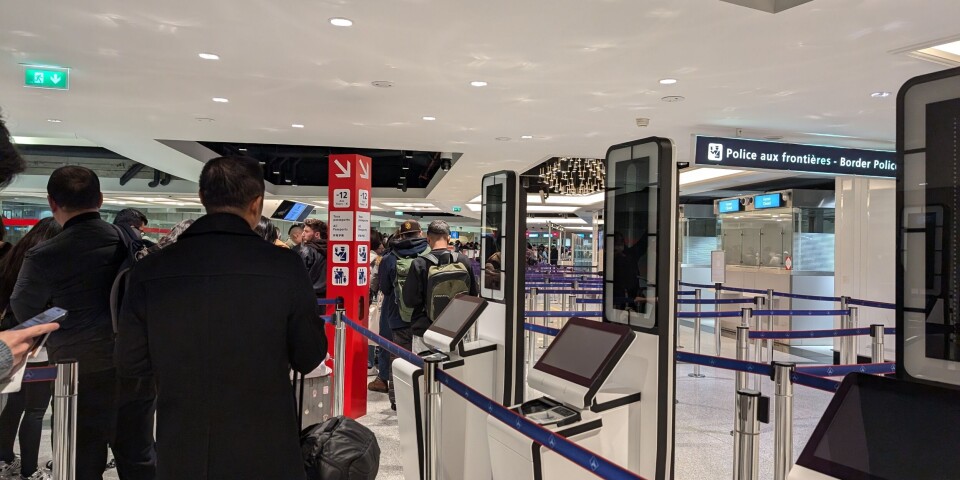-
Photos: Americans take to streets in France to protest against President Trump
Hundreds participated in the No Kings 2 protest on October 18
-
Image: how burglars got into Louvre to steal historic jewels
Investigators search for gang that stole a collection of priceless 19th-Century jewels
-
Ryanair summer services between UK and Béziers return
Flights to London, Bristol, Manchester and others can be booked
Brexit: British security guard in France allowed to keep job
Registration agency said he needed to have held a French residency card for at least five years but these only became obligatory for UK nationals in 2021

A British man working as a security guard in France who risked losing his job over Brexit-related paperwork has been given a reprieve.
The agency in charge of registering security personnel, Cnaps, told The Connexion that his “exceptional circumstances” had not been foreseen.
Callum Colverson, 33, was contacted by his lawyer just before his bid to get his carte professionnelle renewed was due to go to court on Thursday May 4. He was told that Cnaps had agreed that he could get the document he needs to work in France.
We covered his story previously last month.
Read more: Security guard faces lay-off in France due to Brexit-related red tape
He may still have to pay legal fees – although they are likely now to be around €1,700 instead of €3,000 had the case gone to a full hearing.
“It is a great relief,” he said.
“I will probably know the exact sum for the lawyer next week, but just to get the case listed in time was €1,000 and I have a bill for another €700.
“She is going to do the sums and let me know probably next week.”
“It is frustrating not knowing about the money, but I am delighted to know I will be able to work again,” he said.
Originally from Southampton, Mr Colverson has lived in Brittany since he was 12 and started working as a security guard in France after leaving school.
To work as a security guard in France you need to have a diploma, and to be registered with the security industry regulator, Cnaps, which issues licences that are valid for five years.
When Mr Colverson applied for a renewal of his licence he was turned down because he has only had a residency card since 2019.
Britons have only officially needed a residency card since 2021 (when the Brexit transition period ended), though some Britons had earlier applied for optional ‘EU citizen’ residency cards in the aftermath of 2016’s Brexit vote, to help bolster their rights.
However, a 2021 law now states that security workers from outside the EU should have held a carte de sejour for at least five years.
This law was linked to tightening rules to avoid irregular immigrants being employed in the sector.
Mr Colverson previously told us that his employers had been sympathetic to his situation and had offered to advance future wages towards his legal costs and to keep him on their books without pay when his licence expired.
When The Connexion contacted Cnaps to ask about Mr Colverson’s case, it replied that the new law did not allow for any exceptions to the five year rule.
But their email continued: “Due to the particular situation of Mr Callum Colverson and British subjects whose specific case, on the face of it, was not foreseen by this law, we invite Mr Colverson to get in touch with us.”
Mr Colverson did, and believes this led to the decision for his card to be renewed.
Before he knew the outcome of the case, Mr Colverson set up a crowd-funding page, to help with the lawyer fees here.
It had raised €120 of the original €3,000 target by May 4, when it was still not clear whether he would have to pay the lawyer himself or not.
“It very much looks like it will still be used towards my legal fees,” he said.
Related articles
‘Get ready to renegotiate Brexit deal,’ says campaigner Gina Miller
























